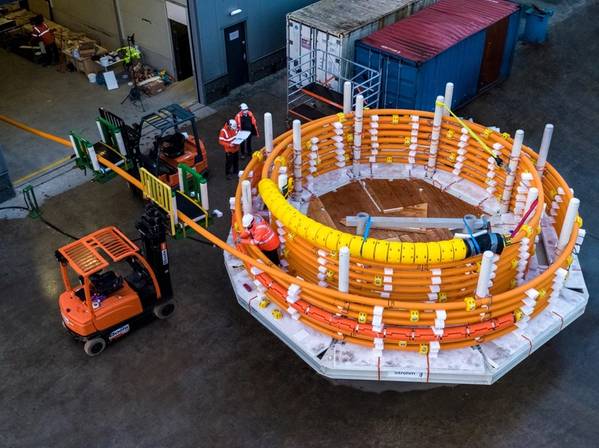
Strohm, formerly known as Airborne Oil & Gas, has announced it has secured a contract with Total and ExxonMobil for a qualification testing program for a high pressure, high-temperature Thermoplastic Composite Pipe (TCP).
The qualification project will create a foundation for further development of this TCP technology for riser applications.
Under the agreement, Strohm will execute a qualification testing program for a TCP Jumper for permanent subsea application, for hydrocarbon service.
"The TCP Jumper is designed and fabricated using carbon fiber and PVDF polymer to provide a powerful combination for subsea high pressure and high-temperature applications," the Netherlands’ headquartered Strohm said.
"This project for Total and ExxonMobil demonstrates our success in the subsea market with our TCP technology on the basis of a compelling business case, fit-for-purpose materials and a clear endorsement of the technology from key clients,” said Henk de Boer, chief technology officer at Strohm.
He continued: “Total and ExxonMobil have previously qualified our materials and products for water injection and have an extensive and deep understanding of composite materials and TCP. We are delighted they have agreed to start this qualification project, which aims to extend our growing qualified product portfolio for Total and ExxonMobil to include hydrocarbon service.”
Ivo Conradi, SURF & SPS R&D lead at Total E&P R&D, commented: “We have been involved in TCP developments with Strohm since the early days. We believe there could be great potential in using TCP Jumpers to optimize subsea architectures, with the aim to reduce cost and increase lay-out flexibility. This program is an important step for our company to be able to consider TCP as an alternative solution in a wider range of subsea applications.”
Tristan Aspray, vice president of research and technology development at ExxonMobil, added: “We recently qualified Strohm’s TCP for water injection applications and look forward to the potential for new offshore product offerings that bring value and maximize efficiencies for upcoming offshore developments.”
According to Strohm, the PVDF polymer is already a fully proven material in subsea flowlines; the carbon fiber is insensitive to long-term effects such as corrosion, fatigue, and creep.
"Strohm expects that this combination makes it the material of choice for high-end subsea application in jumpers, flowlines and risers," the company said.



